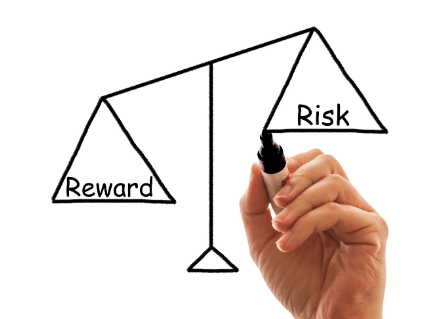“When all else fails, follow the process.” These words were a part of John Henny’s message in this episode of The Intelligent Vocalist podcast.
He talked about focus and control, which can be helpful for any singer’s concerns, including vocal range, understanding vocal registers and healthy vocal production, or the tone quality of their voice. John uses his knowledge and experience to elaborate further on what “following the process” means as a professional singer and a music teacher.
What is the Process?
A process is a systematic approach to achieving a goal. It involves breaking down the task into smaller, manageable steps and following them in order to reach the desired outcome.
In music, this could mean taking lessons from an experienced teacher, practicing regularly, and learning how to use your voice correctly. Following the process also means having patience and understanding that progress takes time. It requires dedication and grit.
However, there are many instances when we don’t fully grasp the importance of even the nitty gritty parts of the process. For instance, we may want to improve our singing voice and yet don’t take care of our vocal health. Others think that the process of becoming a great singer solely relies on taking care of their vocal qualities and forget about the importance of living in a healthy, peaceful environment.
Keeping on track with the process helps us stay focused and organized, which can lead to better results in our singing. Additionally, it gives us a sense of control over our progress and helps us stay motivated.
External vs. Internal Scoreboard
John mentions American Football coach Nick Saban, and what singers can learn from his coaching style. What makes Nick Saban arguably the greatest coach of all time is how he hones his players’ attitudes and perceptions of their games.
What he does with his players is to make them focus on what he calls the process, and the process is what we can control. This is a unique approach to coaching his team.
He believes that the most important thing for his players is to focus on the process, not the outcome—and this is where the concept of the external and internal scoreboard comes into the picture.
The external scoreboard refers to our way of comparing ourselves to others, just as how some football players focus on the national title or the gap of points in the scoreboard. While this can help us catch up, John thinks it can do more harm than good.
Keeping track of the external scorecard can throw out even some famous pop singers and musicians. John shared how he has seen this trait with really gifted students.
Some people have been granted gifts that have become more accessible to them, or they get more than their fair share of opportunity. It’s much like a team looking up at the scoreboard, and they have a considerable lead. They kind of just start falling back, and they don’t execute or focus on what they can control.
This can lead some singers to pull away from their talent, lose confidence in a particular aspect of their singing, or get frustrated at themselves for aspects they cannot control. Meanwhile, others take their abilities for granted.
The opposite of this is the internal scoreboard, where you appreciate your time and spend it identifying aspects you can focus on and control. For instance, singers have control over how much they practice, and how well they practice. How well a singer practices is crucial.
These singers would take time to properly focus on what they are working on. They can learn tonal qualities and understand how their vocal cords impact their singing. They can focus on strengthening their chest voice (or chest register) or head voice (or head register), or smoothing the transition through their register break (or middle register).
Put simply, the internal scoreboard helps singers use their time and energy more effectively, and identify aspects they can control more than the external scoreboard. This will help them become a better singer and stay motivated to keep practicing.
The Power of Control
The power of control is an important concept for singers to understand. Focusing on the process and what we can control gives us a sense of ownership over our progress and helps us stay motivated.
By taking control of our singing journey, we can set realistic expectations about ourselves and what we can improve to be where we want to be.
We have control over what we learn and how we want to learn it. John gives us tips on how to use this control to benefit us:
Control what you listen to and how closely you listen to it.
Rather than music play in the background, actively listen and figure out what you like about it.
Control what you want to study and what information you take in.
However, use caution: don’t jump around too much as you search for information. Although John has encouraged us to “take something from everyone,” he also advises that we actually take in and process the information we find and keep what’s relevant to our goals. Think about what you need to learn, and what is going to make you a better singer.
Control your type of music education.
You can choose to study with a voice teacher, or opt for online courses. John’s VoiceSchool.com is a great resource, and there are many others out there as well.
How to Fix Your Eyes on the Process
Fixing your eyes on the process is essential for singers to reach their goals. Here are some tips John shared in the podcast to help you stay focused on the process:
Focus on what you can control
We’ve already talked about the importance of control. Control is awareness, and this helps us set realistic expectations about ourselves.
Doing so will also help you be less frustrated about your singing journey. You can talk about this more with your vocal coaches.
Maximizing your practice sessions with focus and deliberation can help you improve, even if it’s just for fifteen minutes. Reflection and thoughtful consideration are important components too.
Stop the External Comparison
Your voice is unique because it’s yours. Comparing yourself to other singers can be detrimental and lead to feelings of inadequacy. Instead, you can just focus on your progress and what you can do to improve.
As John mentioned in the podcast, your voice is to be distinct from others. He makes us think about our favorite singers and how they all don’t have the same range of pitches, sing the same style of music, or have the same vocal weight. Some have heavier voices that are more robust, or lighter voices that sound sweet.
Not all of our favorite singers have big powerful, earth-shattering high notes. Instead, we appreciate their expression, connection, musicality, and ability to tell a story and to draw us in.
Take Controlled Risks
Taking controlled risks is an integral part of the process for singers. It can be intimidating to try something new, but it’s essential to push yourself out of your comfort zone if you want to improve. Taking calculated risks can help you develop your voice and discover new techniques to make you a better singer.
This might be scary, given that you’re not just taking risks, but you’re also the one in control. At this point, John advises his listeners to take a chance and step outside.
Do it in front of an audience and appreciate even the note cracks. Confidence is a critical skill, and it is an indication that you’re in control.
Keep the Environment Positive
This mainly refers to your physical environment and how this helps you ensure you’re physically healthy. It’s essential to keep your environment positive and free of distractions.
John suggests that singers should make sure that they’re taking care of themselves by eating healthy, exercising regularly, and getting enough sleep.
Conclusion
Fixing your eyes on the process is essential for singers to reach their goals. It requires discipline and dedication, but it can be done with the right mindset. Focusing on what you can control, stopping external comparison, taking controlled risks, and keeping the environment positive are all crucial steps in staying focused on the process.
Take your voice to the next level with John’s In-House Teaching Team






